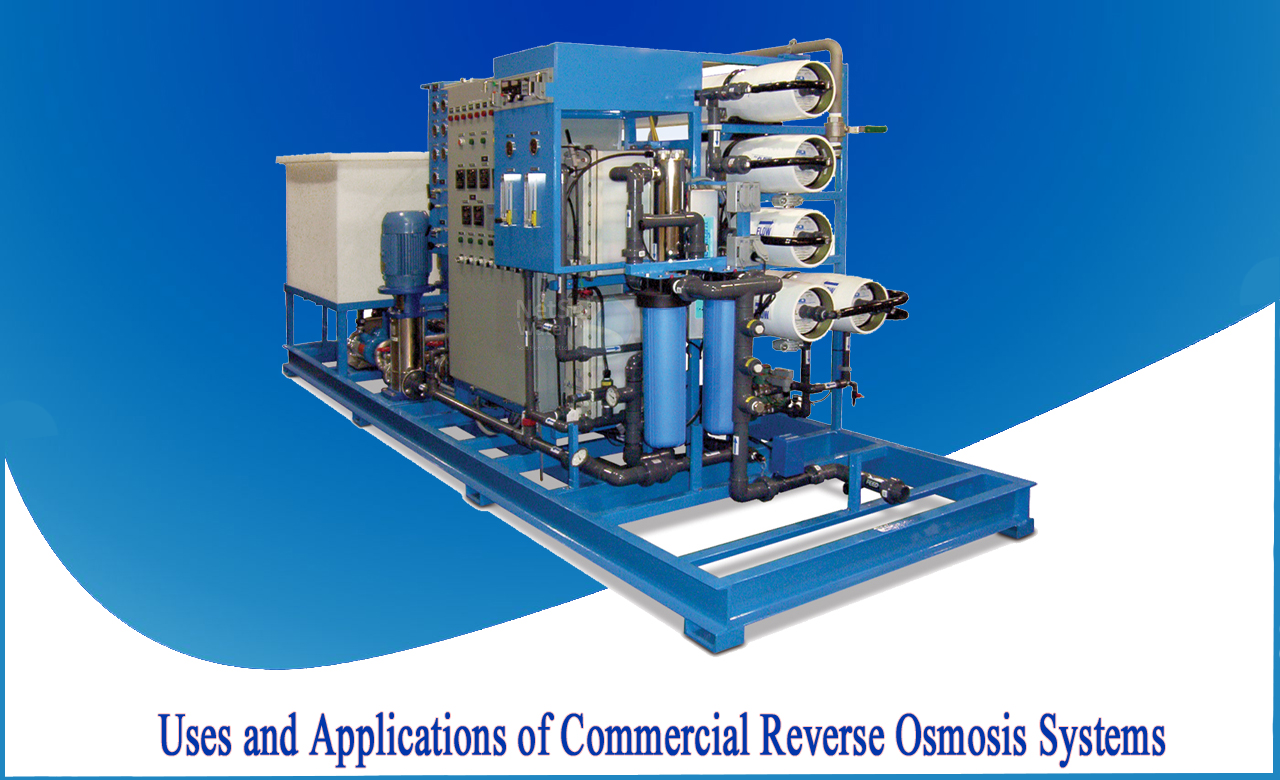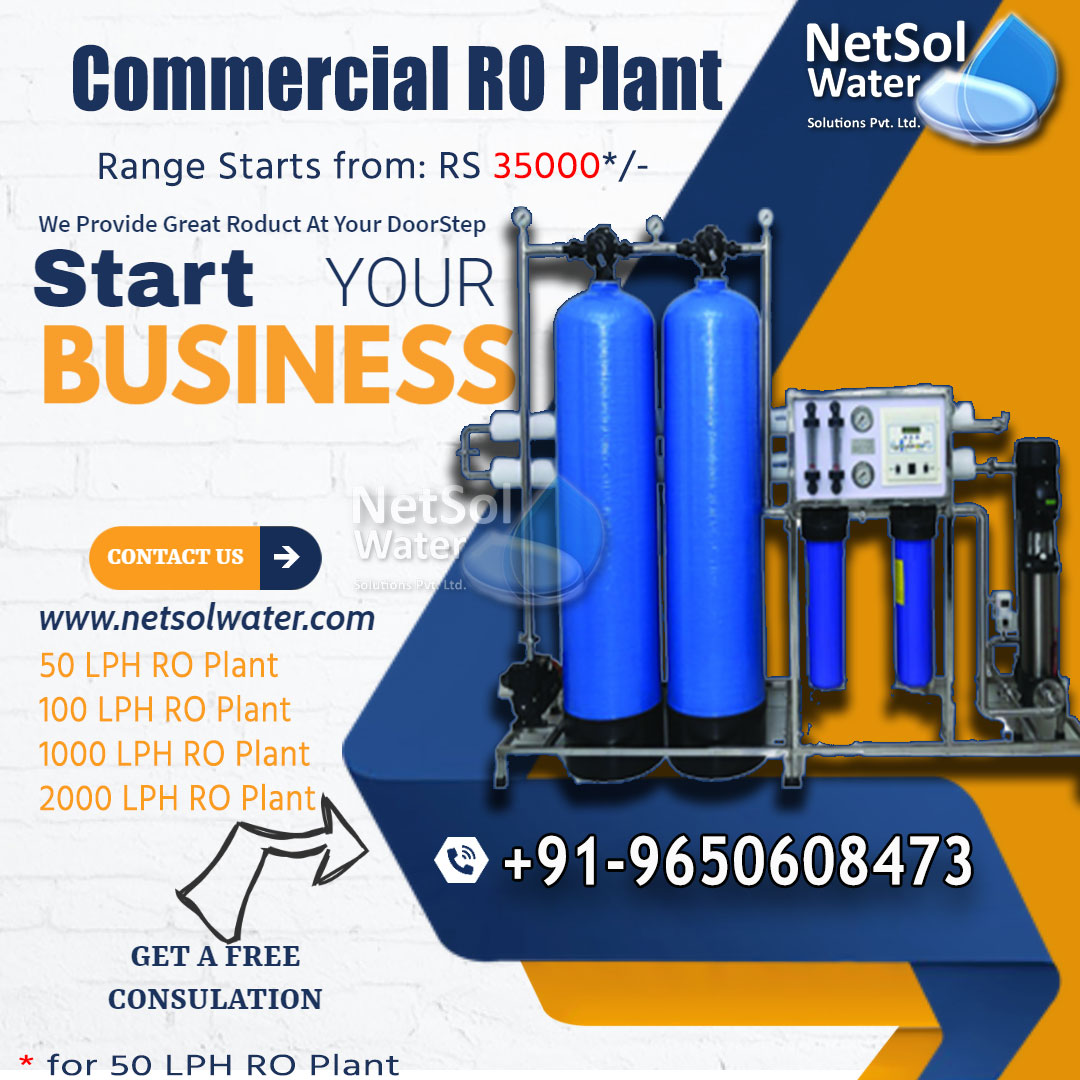What is Reverse Osmosis?
Reverse osmosis is a type of water filtration system that removes pollutants from a source of raw water. It works by forcing pressurized water through a membrane, collecting a concentration of contaminants in the raw water. You'll have pure water to use in your operations after treatment by Reverse Osmosis. It can reject 99.9% of microorganisms, making it ideal for commercial applications.
Advantages of Reverse Osmosis
Membrane-based systems, such as RO, are becoming more popular as a result of their numerous advantages, which include:
1: Environmental
2: Cost-cutting
3: Safety and health
4: Maintenance
What is the Uses and Applications of Commercial RO Systems?
Commercial RO systems can be installed and function similarly to those used in industrial applications. Each RO system's features are suited to the raw water issue you're dealing with and are depending on the quality of water you want to achieve.
Food, beverage, dairy, pharmaceutical, School, college, universities, malls and other industries can benefit from RO systems. Other uses of RO systems are as follows:
-Electronics/Metal Finishing
-Beverage Production and Bottled Water
-Stormwater Treatment
-Pharmaceutical
-Mining Industry
-Chemical Blending
-Safe Drinking Water
-Rinse Water
-Nitrate Removal from Water
-Plating Operations
-EDI Pre-treatment
-Food and Beverage
-Spot Free Product Rinse
-Cooling Towers
-Laboratory
-Boiler Feed Water
-Ice Manufacturing
-Ion Exchange Pre-treatment
Uses of Commercial RO Systems in Breweries and Agriculture
1: Commercial use of RO in breweries: Ascompared to those used in households for pure and filtered water, commercial RO systems are larger and larger in size. They both filter water with RO membranes. They are used to separate water molecules from other dissolved particles in water, such as chemicals, heavy metals, carbonates, and a variety of other substances.
Such RO Systems are perfect for commercial production because they are speedier, take less time, and feature a larger storage capacity in case of an emergency. They are energy efficient and give you with plenty of pure, well-filtered water for brewing beer or other industrial and commercial needs.
2: Agriculture Farm Reverse Osmosis (RO) Systems: Because they come with various stages of filtration to maximise efficiency, reverse osmosis devices are perfect for use in agriculture. Water flows through a succession of filters before reaching the required purity level and being transferred to the holding tank.
These systems function in a simple way: water enters the farm water treatment system and passes through a sediment filter, which separates the big solids and protects the finer filters from clogging. Water passes through the second and third filters after being filtered for large particles and transferred to the RO pumps, where it passes through a specific Reverse Osmosis filter to help it reach the membrane to filter on a molecular level. The filter may now send purified water into a holding tank in this manner.
Select the Best Commercial Reverse Osmosis System Model!
Obtaining estimates directly from leading manufacturers will give you an edge in selecting the best commercial reverse osmosis systems. Find the right one for you, read the fine print, then place your order.
Netsol Water Commercial RO Systems have a lot of advantages_
Through the use of extremely efficient reverse osmosis membranes, our commercial RO system will remove undesired dissolved solids from your tap, brackish, or well water. Our system is the most valuable in the market, with less wastewater, low energy usage, high flow rates, and contaminant rejection at competitive costs. These systems contain dependable components and a solid design, as well as highly desirable features gleaned from years of experience manufacturing high-quality commercial reverse osmosis systems.
Our commercial RO water systems also offer the following benefits:
1: Carbon steel frame membranes from the most respected brands that are compact, heavy duty, and powder coated.
2: Long-term effectiveness.
3: Tested and proven (trouble-free operation).
4: Membrane fouling is kept to a minimum, which saves money.
5: Improvements in energy efficiency
You can always find useful information by liking and following us on YouTube and LinkedIn.




